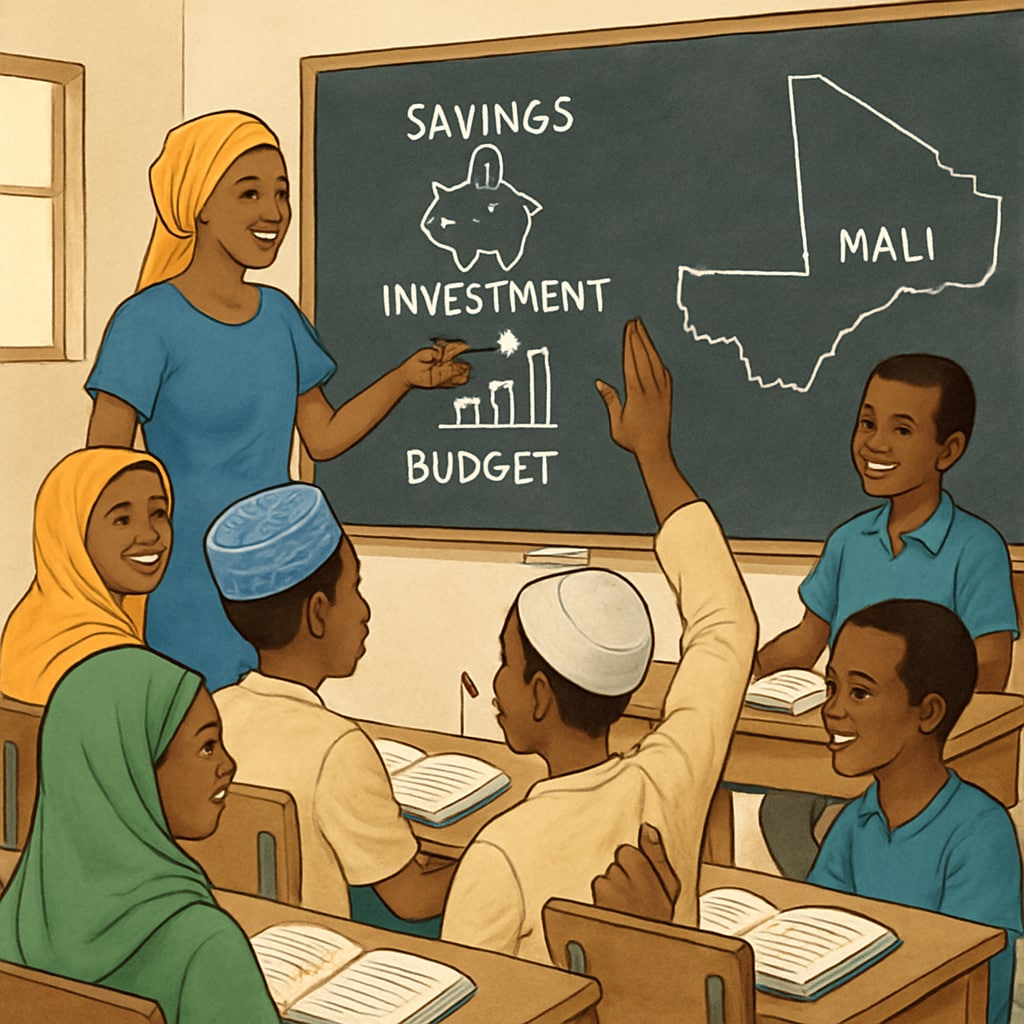Building a successful financial career is a significant aspiration for many students in developing countries such as Mali. However, the journey is often riddled with challenges, including limited access to quality education, constrained opportunities for studying abroad, and the need for self-directed learning. By leveraging the potential of K12 education, developing countries can lay a solid foundation for grooming the next generation of financial professionals who can contribute to their nations’ economic growth.

Challenges in Pursuing Financial Careers in Developing Countries
Pursuing financial careers in developing countries comes with unique challenges. Students often face limited exposure to financial literacy during their early education, which can hinder their understanding of basic concepts like budgeting, saving, and investment. Additionally, access to higher education opportunities abroad is often constrained by financial and logistical barriers.
Another key obstacle is the scarcity of local mentors and role models in the financial sector. Without guidance, many students are left to navigate their career paths independently, often relying on self-learning resources, which may not always be reliable or comprehensive. For example, students in Mali may turn to free online courses or community programs, which can be helpful but lack the structured approach of formal education.
The Role of K12 Education in Financial Career Preparation
To address these challenges, K12 education can play a transformational role in equipping students with the necessary skills and knowledge to pursue financial careers. By integrating financial literacy into the curriculum, students can develop a strong foundation in money management and decision-making from a young age.
For instance, schools can introduce practical exercises like creating personal budgets, simulating investment decisions, and understanding the basics of economic systems. Moreover, career counseling can be implemented to help students explore potential career paths in finance and understand the qualifications needed to achieve their goals.
- Introduce financial literacy as a mandatory subject in K12 education.
- Provide career counseling sessions to guide students toward relevant opportunities.
- Collaborate with local financial institutions for internships and mentorship programs.

Leveraging Self-Learning and Study Abroad Opportunities
In addition to reforms in K12 education, promoting self-learning and facilitating study abroad opportunities can significantly impact students’ ability to build financial careers. Online platforms such as Coursera, Khan Academy, and edX offer free or affordable courses on financial topics, enabling students to access high-quality education from anywhere in the world.
However, studying abroad remains an aspirational goal for many students in developing countries due to financial constraints. Governments and private organizations can play a crucial role by offering scholarships and grants to talented students. For example, programs like the Chevening Scholarships or the Fulbright Program could serve as models for creating similar initiatives tailored to students in developing countries like Mali.
To encourage self-learning, schools can also teach students how to identify credible resources and evaluate their quality. This skill is particularly important in an era where online misinformation can easily mislead young learners.
Conclusion: Investing in the Next Generation of Financial Leaders
Developing countries like Mali must prioritize education reforms that prepare students for financial careers by enhancing financial literacy, offering career counseling, and fostering access to self-learning resources. By doing so, these nations can cultivate a new generation of financial professionals who not only contribute to their personal success but also drive economic growth and stability.
While challenges such as studying abroad and self-learning remain, concerted efforts from governments, educational institutions, and private entities can bridge these gaps. In the end, investing in K12 education is not just about empowering individual students—it is about shaping the future of nations.
Readability guidance: This article uses short paragraphs and lists to summarize key points. Active voice is prioritized, and transitional words like “however” and “therefore” ensure a smooth reading experience.


